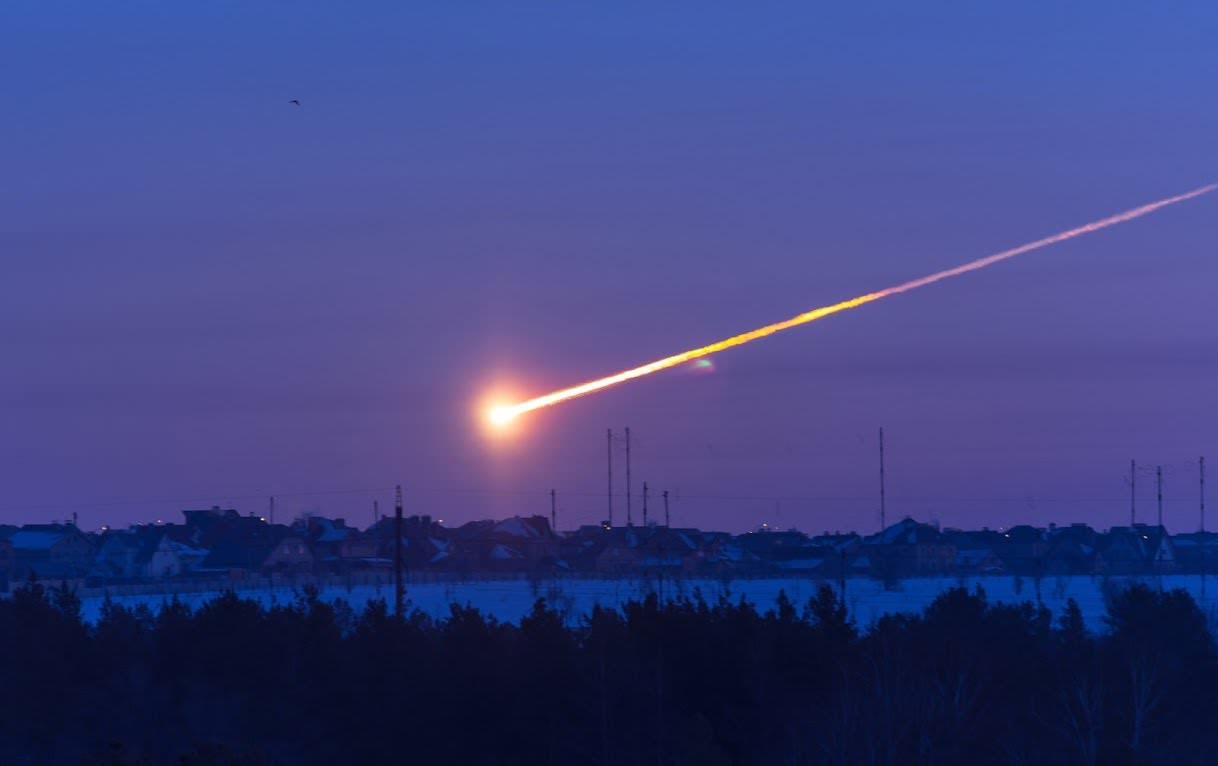Every day, Earth is hit by 60 to 300 metric tons of space dust and smaller meteoroids. But sometimes, larger and more dangerous space rocks plummet to Earth, such as on June 30, 1908 when an estimated 40 meter-wide meteoroid exploded over the Tunguska, Siberia region in Russia, devastating 2000 sq. kilometers (770 square miles) of forest. As the 2013
Chelyabinsk meteor event
attests, the likelihood of a similar event happening again is not an "if" but a "when."
To raise public awareness about asteroid impact hazards and to urge political leaders to work together to be prepared, the United Nations proclaimed June 30 as International Asteroid Day.
A first-ever 24-hour Asteroid Day program will be feature nearly 1,000 events around the world. It starts at 9 p.m. EDT on June 29 (1 a.m. June 30 GMT), streaming online at the
Asteroid Day webcast.
The events start in Tucson, Arizona with an
event hosted
by our friend, Meteorite Man and Action Scientist
Geoff Notkin
speaking with Dante Lauretta and Heather Enos from the OSIRIS-REx mission to asteroid Bennu, Eric Christensen, director, Catalina Sky Survey for Near-Earth Objects and many more.
Other events around the world feature Brian Cox, Neil deGrasse Tyson, Brian May, Peter Gabriel, as well as dozens of expert scientists, technologists and researchers in planetary science, NASA astronauts Rusty Schweickart, Ed Lu and Nicole Stott, ESA astronauts Michel Tognini, Jean-François Clervoy; and Romanian astronaut Dorin Prunariu.
NASA and ESA are both hosting events as well. You can see the entire lineup of events
here (Google document)
and find additional information at the
Asteroid Day Live website.
In addition, the
Discovery Channel
, has produced two specials about asteroids and Asteroid Day to air June 30 around the world: "How to Survive an Asteroid Impact" and a three-minute Virtual Reality video that re-enacts the Tunguska event, provides viewers with an insight into the risks of asteroids, how scientists are trying to protect our planet, and what viewers should do if an asteroid is about to impact their city.
There is also a
seven-part series called "Scientists Rock"
that introduces you to the people working to protect us from Asteroids.
According to a press release from Asteroid Day, central to Asteroid Day is the
100x Declaration,
calling for the 100-fold increase in the detection and monitoring of asteroids. Signed to date by more than 60,000 people around the world, the Declaration resolves to "solve humanity's greatest challenges to safeguard our families and quality of life on Earth in the future. The Declaration is
available online
for the signature of anyone concerned about advancing asteroid research and technology.
 Universe Today
Universe Today
